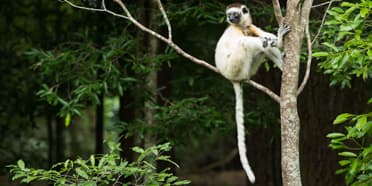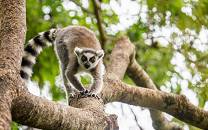
Safari Tours to Ifotaka Forest
-
![17-Day Highlights of Madagascar]()
17-Day Highlights of Madagascar
$12,199 to $13,450 pp (USD)
Madagascar: Private tour
Mid-range Lodge & Tented CampYou Visit: Antananarivo (Start), Andasibe-Mantadia NP, Isalo NP, Toliara (City), Ifotaka Forest, Nosy Komba, Antananarivo (End)

Wayfairer Travel
4.8/5 – 185 Reviews
-
![6-Day Safari Tour from Taolagnaro to Mandrare River Camp]()
6-Day Safari Tour from Taolagnaro to Mandrare River Camp
$5,066 pp (USD)
Madagascar: Private tourLuxuryTented Camp & Hotel
You Visit: Antananarivo (Start), Fort Dauphin (Town), Ifotaka Forest, Antananarivo (End)

Friendly Tour Guide Mada
5.0/5 – 2 Reviews
-

10-Day Beach and Lemur Explorer
$6,390 to $8,340 pp (USD)
Madagascar: Private tour
Mid-range Lodge & Tented CampYou Visit: Nosy Be (Start), Mitsinjo Forest, Perinet SR, Antananarivo (City), Ifotaka Forest, Antananarivo (End)

Jenman African Safaris
4.9/5 – 22 Reviews

 Madagascar Parks
Madagascar Parks









_50_6555f2634ecdf.960x480-84.jpg)
